5 min read
Share this post

Hi,
I’m James Heywood and I’ve been teaching ESL as an independent online tutor since 2012. In this post I will walk you through the strategies and lesson plans that I use to teach relative clauses.
Off2Class has a Relative Clauses category aimed at students who are ready to tackle complex sentences and dependent clauses. The category is designed for you to teach relative clauses to your students in a logical manner. It contains eight lesson plans to enable your students to grasp both the form and function, while providing opportunities to produce the target language.
As with areas of the English language such as reported speech and phrasal verbs, ESL students will probably already have had exposure to relative clauses before they study them formally. Since the relative pronouns which and who, and the relative adverbs when, where and why are used as question words in English, students will probably be familiar with these terms before you start to teach relative clauses.
And remember, if you are a subscriber to our site, you can contact me here for a free one-on-one videoconference about how to teach relative clauses. I’ll take you personally through the lessons, answer your questions, and ensure you’re confident and ready to teach relative clauses effectively.
The following is a summary of what you will find in our Relative Clauses category:
Introduction to Relative Clauses (RC1.1 to RC1.2)
The relative pronouns that, which, who and whose:
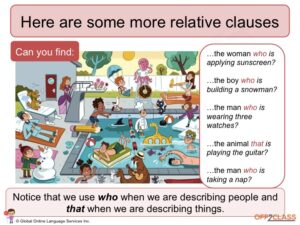
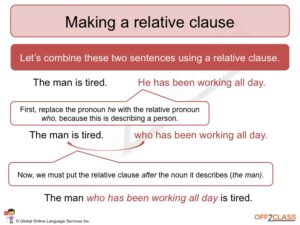
Relative Clauses, Subject and Object Pronouns and the Relative Adverbs (RC1.3)
Here we demonstrate how relative pronouns can be either the subject or object of a clause:
And the relative adverbs:
Relative Clauses with who and whom (RC1.4)
We introduce the usage of whom as the object pronoun for people, and the differences in register:
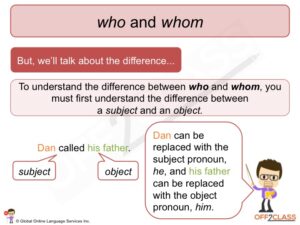
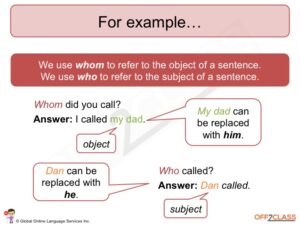
Prepositions in Relative Clauses (RC1.5)
We introduce the relative adverb substitution rule so that students understand the difference in form and usage of sentences, such:
Defining and Non-defining Relative Clauses (RC1.6)
Here we look at how intonation changes for what are also known as Restrictive, and Non-restrictive Relative Clauses, and their difference in meaning:
Shortening Relative Clauses (RC1.7)
Here we demonstrate the reduction of relative clauses in particular circumstances:
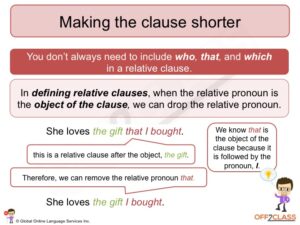
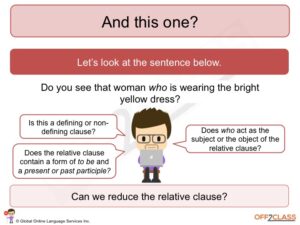
Quantifiers with Relative Clauses (RC1.8)
In the final lesson of our series, we examine how quantifiers can be used with relative clauses, such as:
Share this post
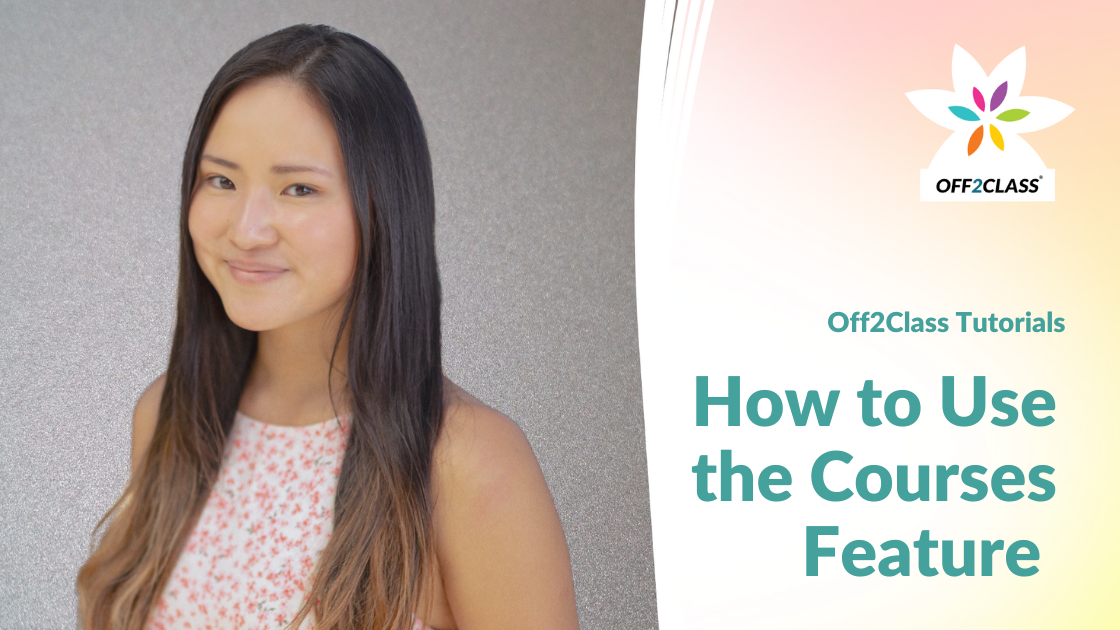


11 Comments
Very useful and interesting…
Thanks for stopping by Siddik, hope you enjoy the series!
Really useful, Thanks!
Cheers Robson, we hope you get lots of teaching enjoyment out of the series!
Hi! Very well planed lessons. Can they be downloaded?
thanks,
Juliana
Hi Juliana! Thanks for the kind words! No Off2Class runs as a software not as a download so that you can manipulate our content in real time for your students (annotations, editing capabilities, translation, dictionary and a whiteboard). Although, earlier this year we did release a download of a different lesson as a thank you to our teacher community. Enjoy! https://www.off2class.com/esl-lesson-plan-download-possessive/
Hi I’m Soheila from Iran.It was very useful for me. Thanks alot
Glad you liked it, Sohelia!
thank you, very useful and the visuals definitely helped.
This is very useful to our learners whose English is new to them.
Thanks Benoit, we’re so glad you’re enjoying the content!